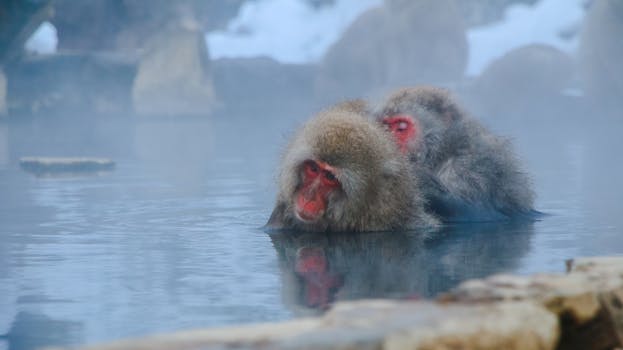Introduction to Japanese Spa Culture
Japan is renowned for its rich cultural heritage, and one of the most cherished aspects of this heritage is its spa culture. Traditional Japanese spas, known as onsens, and modern thermal baths offer a unique blend of relaxation, wellness, and natural beauty. These facilities are not just places to unwind; they are deeply rooted in Japanese history and philosophy, emphasizing the importance of harmony with nature and holistic well-being.
The Essence of Onsen
Onsen are natural hot springs that are heated by geothermal activity. They are often located in picturesque settings, surrounded by mountains, forests, or rivers, providing a serene environment for relaxation. The mineral-rich waters of onsens are believed to have therapeutic properties, making them a popular destination for both locals and tourists.
Health Benefits of Onsen
The health benefits of soaking in onsen are well-documented. Some of the key advantages include:
- Improved Circulation: The heat from the water helps to dilate blood vessels, improving blood flow and circulation.
- Muscle Relaxation: The warm water soothes sore muscles and alleviates tension, making it ideal for post-exercise recovery.
- Skin Health: The minerals in onsen water, such as sulfur and magnesium, can improve skin conditions and promote a healthy complexion.
- Stress Relief: The tranquil environment and warm water provide a perfect setting for relaxation, reducing stress and anxiety levels.
Traditional Spa Treatments
In addition to soaking in onsen, many Japanese spa resorts offer a variety of traditional treatments that enhance the relaxation experience. These treatments often incorporate natural ingredients and techniques that have been passed down through generations.
Popular Treatments
- Shiatsu Massage: This traditional Japanese massage technique uses finger pressure to relieve tension and promote relaxation.
- Abhyanga: A form of Ayurvedic massage that uses warm oil to nourish the skin and improve circulation.
- Facial Treatments: Many spas offer facials that utilize local ingredients such as rice bran and green tea, known for their skin-nourishing properties.
- Body Scrubs: Exfoliating treatments using natural ingredients like sea salt or loofah to rejuvenate the skin.
Modern Thermal Baths
While traditional onsens remain popular, modern thermal baths have emerged as a contemporary alternative, often featuring advanced facilities and amenities. These baths combine traditional practices with modern wellness trends, catering to a diverse clientele.
Features of Modern Thermal Baths
Modern thermal baths often include:
- Variety of Pools: Multiple pools with varying temperatures and mineral compositions, including cold plunge pools and herbal baths.
- Saunas and Steam Rooms: Facilities designed to enhance detoxification and relaxation.
- Wellness Programs: Many resorts offer yoga classes, meditation sessions, and wellness workshops.
- Dining Options: Healthy dining options that focus on seasonal and local ingredients, promoting overall wellness.
Case Studies: Notable Japanese Spa Resorts
Several spa resorts in Japan exemplify the best of onsen and thermal bath experiences. Here are a few notable examples:
- Kusatsu Onsen: Located in Nagano Prefecture, Kusatsu is famous for its high sulfur content and beautiful natural surroundings. The Yubatake (hot water field) is a symbol of the town.
- Hakone Yumoto Onsen: Close to Tokyo, this onsen offers stunning views of Mount Fuji and a variety of ryokan (traditional inns) that provide authentic Japanese hospitality.
- Gero Onsen: Recognized as one of Japan’s top three onsens, Gero Onsen is known for its milky white waters and numerous public baths.
Conclusion
Japanese spa resorts, traditional onsens, and modern thermal baths offer a unique and enriching experience that combines relaxation, health benefits, and cultural heritage. Whether you are seeking the therapeutic effects of mineral-rich waters or indulging in traditional spa treatments, these facilities provide a sanctuary for rejuvenation and well-being. As the world increasingly embraces wellness tourism, Japan’s spa culture stands out as a testament to the harmonious relationship between nature and self-care, inviting visitors to immerse themselves in a truly restorative experience.
